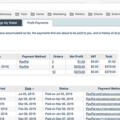Purchase mortgage volume projected to clear $2.1T in ’22, ’23
Despite the expected rise in interest rates, the single-family housing market will continue to be boom in 2022, according to a report published by Freddie Mac this week.
Sam Khater, chief economist at Freddie Mac, said in a statement that the “combination of a large number of entry-level homebuyers facing a shortage of entry-level inventory of homes for sale should keep the housing market competitive.”
However, Khater did note that as rates rise, there will be some moderation in housing demand, causing home price growth to temper.
Specifically, the government-sponsored enterprise forecasts that house price growth will dip from 15.9% in 2021 to 6.2% in 2022 and to cool further to just 2.5% in 2023. The report also added that home sales are projected to hit 6.9 million in 2022 and increase to 7.0 million in 2023.
Freddie anticipates that home purchase mortgage originations will increase in the next two years, spurred by demand coupled with house appreciation.
The expectation is that home purchase mortgage originations will grow from $1.9 trillion in 2021 to $2.1 trillion in 2022 and $2.2 trillion in 2023.
On the other hand, total originations (which includes refinances) are expected to dip from $4.7 trillion in 2021 to $3.3 trillion in 2022 to $3.1 trillion in 2023, the report said.
“Refinance activity is anticipated to decrease from $2.7 trillion in 2021 to $1.2 trillion in 2022,” Khater remarked.
Additionally, the report mentioned that the average 30-year fixed-rate mortgage is expected to be 3.6% in 2022 and 3.9% in 2023.
Just this week, the average 30-year-fixed rate mortgage climbed to 3.56%, rising from 3.45% the week prior, Freddie’s PPMS Mortgage Survey found.
Khater said that the rate increase is in tandem with the 10-year U.S. Treasury yield rising and financial markets adjusting to anticipated changes in monetary policy that will combat inflation.
The Federal Reserve announced in December that will accelerate its tapering of bond-purchases starting in January. It is reducing the pace of its monthly purchases by $20 billion for Treasury securities and $10 billion for agency mortgage-backed securities.






